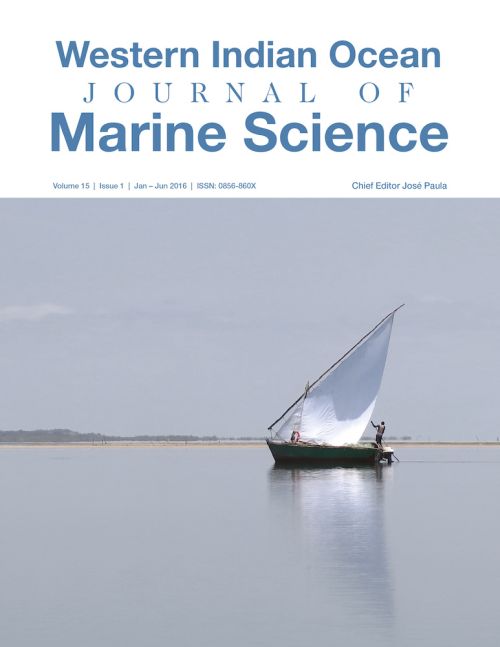 Western Indian Ocean Journal of Marine Science
Western Indian Ocean Journal of Marine Science
Journal / Western Indian Ocean Journal of Marine Science /
Vol. 15 No. 1 (2016) / Articles
This study investigated local knowledge of fishermen in weather prediction in Moa and Kwale coastal villages, Tanzania. Focus Group Discussions, Seasonal Calendars, Time line analysis, key informant interviews, questionnaire surveys and documentary reviews were used to gather data. The SPSS programme was used to analyze quantitative data while qualitative data was analyzed using content analysis. Fishermen were found to observe the behaviour of sea water, plants, fish species, sea worms, marine mammals, terrestrial animals, amphibians, human beings, birds, insects, sea rubbish, moon, clouds, rainbow, sun, sea sand, stars and sky, to predict weather change in their localities. Of the many weather parameters mentioned, wind and rainfall were regarded as the most important weather parameters to consider when planning for fishing expeditions. It was also noted that the majority of fishermen are aware of climate change through long term observation of local weather patterns in their localities. Fishermen were found to be able to predict typical weather conditions and productivity seasons throughout a year. However, despite the usefulness of local prediction, this important knowledge is challenged with a number of issues that threatens its existence. The study recommends various approaches to strengthen and sustain the effectiveness of local weather prediction.
Journal Identifiers
eISSN: 2683-6416
print ISSN: 0856-860X






